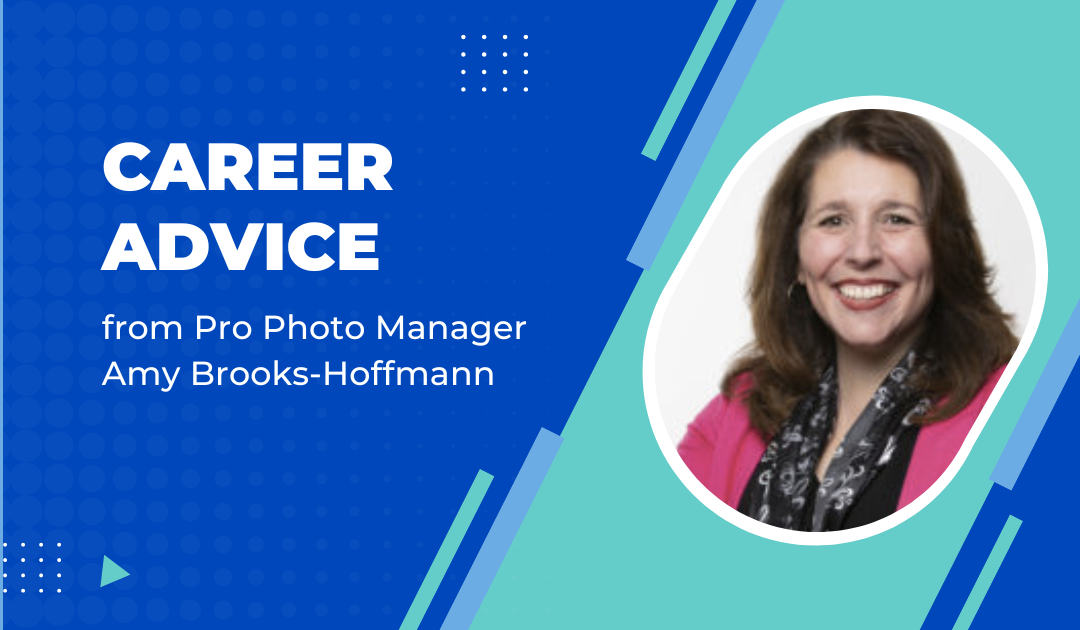 As a member since 2013, Amy Brooks-Hoffmann is an experienced photo manager. In this interview, she shares her advice for anyone starting a business in this growing field.
As a member since 2013, Amy Brooks-Hoffmann is an experienced photo manager. In this interview, she shares her advice for anyone starting a business in this growing field.
As part of the 5th generation in her family to live in Louisville, Kentucky, Amy has always loved collecting stories from her many relatives. Amy earned an undergraduate degree in Art History from the University of Louisville before starting a family and later, her own business. After the birth of her first child in 1999, she started scrapbooking as both a personal and professional outlet. As photos transitioned from print to digital, more customers were looking for a done-for-you solution. Amy realized the potential of this new career and become a member of The Photo Managers (previously known as the Association for Personal Photo Organizers) in 2013 and attended her first conference in Chicago.
What advice would you have for people that are just getting started in photo organizing?
When the COVID-19 pandemic began, people were spending more time at home, finding their projects, and wanting to get things organized. As a whole, people want to connect to their families more than ever. The pandemic has been a reminder of what is important – loved ones, as opposed to things.
With that in mind, right now is a great time to start a business as a photo organizer. I would encourage someone who’s starting out to talk with their families and friends about the idea. When you’re first starting out, choose to invest in things that will give you a quick return, such as membership with The Photo Managers, and talk the idea out with people that you know.
How would you answer when someone asks, “What do you do?”
When someone asks me “What do you do?” I tell them that I am a professional photo organizer. Then it goes either one of two ways. Sometimes, the person gets it immediately. They usually then ask if I can help the with the photos in their closet or under their bed, and I say yes! Or, they drift away, and they’re not my person.
My advice is to just keep talking to people. When you talk to people about their photos, most people think they have the most photos ever. Good questions to ask at that point are: “How would you like to enjoy those again?”, “How would you like to share those photos?”, “Would you like to just clean them up so your family doesn’t have to when you pass away or when you move on to another home?”
If the conversation continues, I set up a zoom call, or plan to meet with the person for coffee. Sometimes, the person will immediately invite me to their house and give me the job. The type of person especially attracted to our services is one that is sentimental and understands the idea of consultant services. They also have disposable income and want to leave a legacy for their families.
What terms do you like to use to describe photo managing services?
I like using words like legacy, heritage, collections, and curating a photo collection. Those are some buzz terms that I use because I think they are more long-lasting and carry more weight than saying scrapbooking or photo albums.
What kind of clients do you primarily work with?
I work with two specific types of clients, both equal and important. The first type comes to me with a one-time event. For example, one recent project was for a couple’s 65th wedding anniversary. They renewed their vows with a big family event and hired a professional photographer to capture it. We created a very simple photo album of the event and they ordered 11 copies to share with their family. These one-time events could be a birthday party, a wedding, a bar mitzvah, or a similar occasion.
The other type of client that I have is someone who has their whole family history. They’ve got the slides, memorabilia, bulletins from church, programs from ballgames, and more. This person is often a baby boomer who is interested in getting his or her affairs in order because they’ve had to deal with estates before, either with their own parents or aunts and uncles. Their photo collection is of the children that they have raised, who are now adults with children of their own, and also inherited photographs that may go all the way back to tintypes from two or three generations prior. The first step with these clients is always to talk with them to understand what their needs are. Then, it’s about culling their collection in order to find the gems and celebrate them in the best way for their family.
What do you love most about being a photo manager?
The best part about being a photo manager is the people! Getting to know and be trusted by a family, and becoming friends with them, is really the best.
What are some of the challenges involved in being a photo manager and how do you overcome them?
Because this is a niche business, not everyone understands what we do so you cannot easily advertise like a plumber or an electrician. Everybody knows what a plumber does, and everybody knows what an electrician does. As a photo manager, however, you’re not only introducing yourself, but you’re also educating your future clients about what we do. It can be a long sales cycle.
Being part of the Photo Managers, and taking part in the Masterclass of 2019 was pivotal for me as it helped me form relationships with others in this field so I never feel isolated.
To help me make connections in my local community, I take part in networking events and volunteer activities. I find it helpful to attend weekly sessions through Business Networking International (BNI). As it is a referral-based organization, I’ve generated a lot of leads there. I’m also a part of several women’s groups in Louisville. One of these is called Glow. We meet monthly, there is always a speaker, and it feels almost like you’re attending a networking cocktail party in the evening after work.
Watch the full interview below for more advice from Amy Brooks-Hoffmann including tips on pricing, equipment and more.
Key Takeaways:
#1: Now is a great time to start a business as a photo manager! People are more aware than ever of the importance of preserving family history.
#2: Make investments that have a quick return, like volunteering with local organizations or joining a supportive community like The Photo Managers.
#3: Clients may come to you for one-time event photo books, or to deal with a large family history project. Either type of work can easily lead to the other and generate great word-of-mouth advertising.


Recent Comments